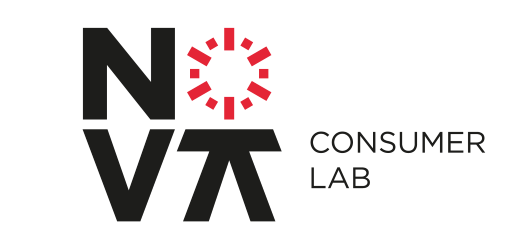No dia 19 de novembro, a Comissão Europeia apresentou a Agenda do Consumidor 2030, um plano estratégico para os próximos cinco anos, que visa reforçar a proteção dos consumidores, promover a competitividade e apoiar o crescimento sustentável no mercado único. Apesar da relevância do tema, esta Agenda suscita algumas questões quanto à sua ambição e orientação estratégica.
Uma Agenda pouco ambiciosa?
À primeira vista, a Agenda não parece particularmente ousada. Não são propostas reformas estruturais significativas ou novos paradigmas regulatórios, optando-se por uma abordagem centrada na revisão e adaptação de legislação existente. O foco está na simplificação das regras e na redução dos encargos administrativos para as empresas, mais do que na criação de um quadro normativo inovador.
Esta opção reflete uma tendência recente do Direito Europeu do Consumo: uma regulação mais pormenorizada, com normas específicas para setores ou práticas concretas, em detrimento de instrumentos gerais e abrangentes.
Competitividade como objetivo central
Outro ponto que merece destaque é a orientação da Agenda para a competitividade das empresas europeias. O documento sublinha repetidamente a necessidade de simplificar normas e reduzir encargos administrativos, de modo a criar um ambiente “claro, justo e previsível” para as empresas. Esta prioridade está alinhada com a lógica da Bússola para a Competitividade e com a estratégia para completar o mercado único.
A ideia é que regras mais simples e a sua aplicação mais eficaz permitam às empresas reduzir os custos de conformidade e aproveitar melhor as oportunidades do mercado interno. A eficácia da legislação europeia em matéria de consumo constitui, assim, também um objetivo da Comissão Europeia.
Proteção dos consumidores vulneráveis e sustentabilidade
Apesar desta orientação geral a favor da competitividade, a Agenda mantém as preocupações mais recentes da política de consumo:
– Proteção dos consumidores mais vulneráveis, com referência expressa e abrangente aos menores;
– Lealdade em ambientes digitais, com destaque para medidas contra a manipulação algorítmica e a publicidade enganosa;
– Consumo sustentável, nomeadamente no que se refere a ecodesign para produtos sustentáveis, direito à reparação e transição verde, com o objetivo de promover produtos duradouros, reparáveis e com menor impacto ambiental.
Estas ações respondem a desafios sociais e ambientais muito relevantes.
Calendário das principais propostas legislativas e iniciativas
Segundo o que aparece indicado na Agenda, podemos prever, para já, seis propostas legislativas neste período, todas em 2026 (v. o Commission Work Programme 2026 para um cronograma mais preciso):
– Regulamentos sobre serviços multimodais de mobilidade digital e reserva e emissão de bilhetes digitais e revisão do Regulamento sobre os direitos dos passageiros ferroviários (1.º trimestre de 2026).
– European Product Act (3.º trimester de 2026).
– Digital Fairness Act (4.º trimestre de 2026).
– Revisão do Regulamento (UE) 2017/2394, do Parlamento Europeu e do Conselho, de 12 de dezembro de 2017, relativo à cooperação entre as autoridades nacionais responsáveis pela aplicação da legislação de proteção dos consumidores (4.º trimestre de 2026).
Admite-se que, de outras iniciativas previstas na Agenda, possa resultar a adoção de mais propostas, tendo em conta os resultados da avaliação feita pela Comissão Europeia.
Outras iniciativas previstas mais palpáveis previstas no diploma são o lançamento da:
– Carteira Europeia de Identidade Digital (4.º trimestre de 2026).
– Lançamento da Plataforma Europeia em Linha para Reparação, prevista no artigo 7.º da Diretiva (UE) 2024/1799, do Parlamento Europeu e do Conselho, de 13 de junho de 2024, relativa a regras comuns para promover a reparação de bens (2028)
Conclusão
A Agenda do Consumidor 2030 confirma a tendência europeia para uma regulação detalhada e setorial, com foco na simplificação e na competitividade das empresas. Embora inclua medidas relevantes para a proteção dos consumidores vulneráveis e para a promoção da sustentabilidade, falta-lhe uma abordagem mais integrada e ambiciosa que responda aos desafios globais do consumo no século XXI. Estou a pensar, por exemplo, na responsabilidade por decisões automatizadas ou na proteção contra a manipulação algorítmica em larga escala, na globalização das cadeias de fornecimento, incluindo a necessidade de due diligence no que respeita a práticas sustentáveis com origem fora da União Europeia, nos efeitos do consumo excessivo na crise climática ou no descontrolo da exploração comercial (e não só) dos dados pessoais dos cidadãos europeus. Para os juristas e os académicos, este documento é um sinal claro da evolução do Direito do Consumo Europeu: menos grandes princípios, mais micro-regulação.
